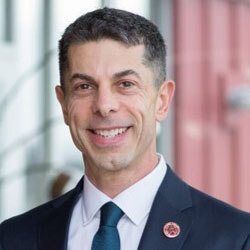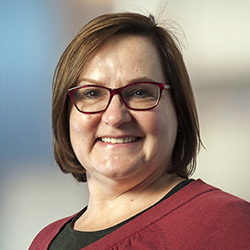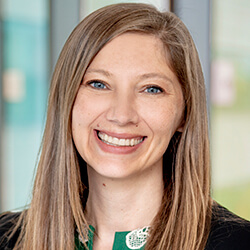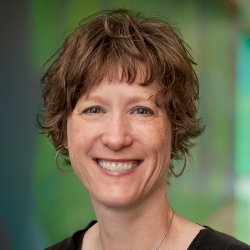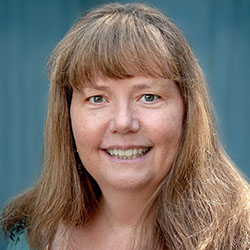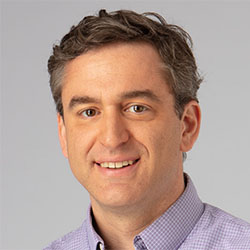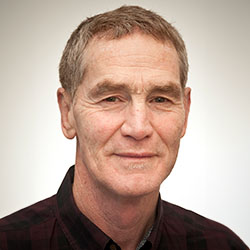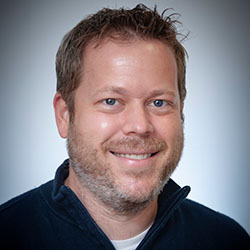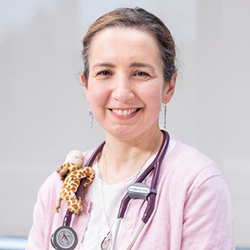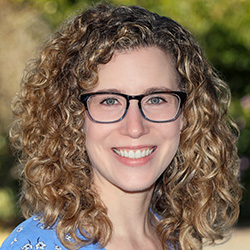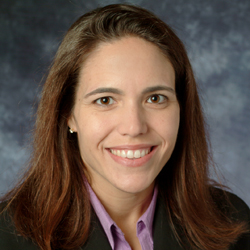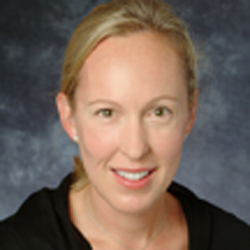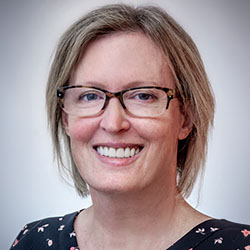Clinical Genetics
Genetics is the study of how traits (like hair color) and medical conditions pass from parents to children. Changes in cause a broad range of conditions, including some types of epilepsy, hearing loss, heart defects, cleft palate and .
How will Seattle Children’s Clinical Genetics help my child?
Experts from many specialties will work as a team to identify any genetic condition your child may have and create a care plan for their best health. If a genetic condition is discovered during pregnancy, we work with Seattle Children’s Fetal Care and Treatment Center to help your family prepare.
Children with genetic conditions often have complex care needs. We refer your child to medical specialists across Seattle Children’s. We also work with your primary care provider so your child gets the right care close to home.
To make a precise genetic diagnosis, we use information from your child’s medical and family history, physical exams and state-of-the-art genetic testing. Our genetic counselors will explain the test options and what to expect. If you choose to have testing, our counselors help your family understand what the test results mean for your child and other family members.
When Amelia was born, Amanda brought her to Seattle Children’s for genetic testing. She was diagnosed with Alagille syndrome, a rare genetic disorder. Having been a patient here herself, Amanda knew her daughter would have access to state-of-the-art therapies, some only available through clinical trials.
Read their story.
Among the nation’s top centers for rare diseases
Seattle Children’s has one of the largest pediatric genetic medicine programs in the country. We are the only children’s hospital in the Pacific Northwest named a Rare Disease Center of Excellence by the National Organization for Rare Disorders (NORD). At NORD Centers of Excellence, experienced teams of world-class doctors diagnose and treat a wide range of rare diseases. We are part of the Undiagnosed Diseases Network (UDN), funded by the National Institutes of Health. We partner with other UDN members to improve diagnosis and care for patients with hard-to-diagnose diseases.
Research to gain insights and advance care
Genetics is one of the fastest-changing areas in medicine, as researchers continue to pinpoint the genes that cause a wide array of disorders. Seattle Children’s researchers work to identify genetic causes of disease and develop new ways to test for them. Identifying the precise genetic cause of a disorder can open the door to more treatment options and help develop new ones. Our patients have access to of promising new treatments.
We invite our patients to take part in that collect medical information about children with genetic conditions. By combining information from many children with the same rare disease, we can look for patterns and gain insights for better diagnosis and treatment.
Conditions We Diagnose
Thousands of medical conditions are at least partly genetic. We are the most well-known referral center for genetic disorders in the Pacific Northwest and one of the best known in the nation. We see babies, children and young adults with these and other conditions.
Arthrogryposis
Arthrogryposis (arth-ro-grip-OH-sis) means a child is born with joints that don’t move much or may even be stuck in 1 position. Often the cause is lack of muscle development before birth (amyoplasia). Children with arthrogryposis may have other health problems. Read more about arthrogryposis.
Chromosomal conditions
Chromosomes are the part of cells that contain genes, which carry information passed from parents to children. Health problems can arise when the number or structure of chromosomes is not normal. For example, trisomy 21 (Down syndrome) happens when a person is born with an extra copy of chromosome 21. It often leads to lifelong intellectual and . Turner syndrome occurs when girls are born with only 1 X chromosome instead of 2 or are missing part of an X chromosome. Girls with Turner syndrome go through sexual development differently.
Neurogenetics
Neurogenetics refers to changes in genes that affect how the nervous system forms and grows. These genetic changes may cause a wide range of differences, such as autism spectrum disorder, epilepsy syndromes, and intellectual disability.
Genetic changes that affect brain development can lead to many different disorders. For example, ciliopathies cause problems with how hairlike structures called cilia form and work. This can affect a wide range of the body's systems, including the brain. In Joubert syndrome, the brainstem does not form normally.
Neurofibromatosis is a group of disorders of the nervous system that most often affect the growth and development of nerve cells. The disorders can cause tumors that are not cancerous (benign tumors) to grow on nerves. They can also cause problems in bones and skin. Learn more.
Birth defects or dysmorphic features
A birth defect (also called a congenital anomaly) is a difference in part of the body that is present at birth. An example is cleft palate. Some body parts that do not form properly are called dysmorphic features. These can be a sign of other genetic conditions.
Many babies we diagnose have multiple congenital anomalies (MCA). They were born with either 2 or more major problems (such as a heart defect or a missing limb) or with 3 or more minor problems (such as a clubfoot or fused fingers).
Growth disorders
A growth disorder is any problem in babies, children or teens that prevents them from having typical growth. Many conditions can disrupt the way your child grows, including genetic problems. For example, genetic abnormalities can cause one side of the body to grow larger than the other (hemihypertrophy) or interrupt the growth of an unborn baby's brain so that the head is smaller than usual (microcephaly).
Vascular anomalies
Vascular anomalies are abnormal blood vessels or . Many are present at birth (congenital) or appear soon after. Many vascular malformations are caused by a change in 1 or more genes. The genetic change can lead to abnormalities in blood and lymphatic vessels in any part of the body. Sometimes a vascular anomaly is a sign of another condition that affects many parts of the body. Learn more.
Services We Provide
The Clinical Genetics team works with your family to diagnose your child’s genetic condition, create a care plan and refer your child to the treatments and services they need for their best health.
We often care for children who were the first in their family to be diagnosed with a genetic condition. Sometimes, this leads their parents or other family members to be checked and find out they have the same condition. We offer evaluations for children, such as siblings of a child who has already been diagnosed. Understanding your family's history of genetic conditions can help in diagnosis and treatment.
Our team provides:
- Tests, and exams to diagnose genetic conditions (PDF)
- Genetic counseling to:
- Explain your child’s condition
- Discuss whether other family members or your future children might be affected
- Talk about the options for genetic testing and what any test results mean
- Offer support and resources to help your family cope and get the right care
- Regular visits during childhood and up to age 21 to inform you of new developments related to your child’s disorder
- Referrals to a wide range of other Seattle Children’s clinics and programs, as needed, so your child gets complete, coordinated care
- Transition to experts who can meet your child’s adult healthcare needs when the time is right
Scheduling an Appointment With Clinical Genetics
If you would like a Clinical Genetics appointment, ask your child’s primary care provider or specialist to refer you.
If you have a referral, contact us at 206-987-2056, option 1 to make an appointment. For Yakima Children’s Village, call 509-746-4240.
If you have an appointment, read about:
- How to prepare and what to expect
- Genetics resources such as useful links, videos and recommended reading for you and your family
Learn more about how to schedule an appointment at Seattle Children’s.
Providers, see how to refer a patient to Clinical Genetics.
Clinical Genetics Team
Leadership
-
Division Chief
-
Associate Division Chief; Director, Medical Genetics
-
Associate Medical Director, Inpatient Service
Teams
Doctors
-
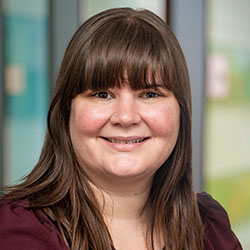
Jennifer Cassady Hayek, MD
-
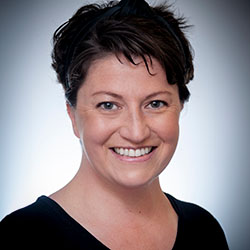
Alexandra Catherine Keefe, MD, PhD
Registered Nurses
-
Bernice Cristobal, RN, BSN, CCRN
-
Kendra Del Rosario, RN, BSN
-
Kenadie Hamblin, RN, BSN
-
Kasea Hildebrandt, RN, BSN
-
Aishleen O’Brien, RN, BSN, CPN
Genetic Counselors
-
Teresa Campbell, PhD, MS, CGC
-
Jennifer Cech, PhD, MS, CGC
-
Mike Gibbs, MGC, CGC
-
Sabina Gudmundsson, MS, CGC
-
Luke Kruidenier, MS, CGC
-
Jamie Love-Nichols, MS, MPH, CGC
-
Zoe Nelson, MS, CGC
-
Lauren O’Sullivan, MS, CGC
-
Amanda Peterson, MEd, MS, CGC
-
Lex Powers, MS, GC
-
Kendall Schmidt, MS
-
Abbey Scott, MS, CGC
-
Audrey Squire, MS, CGC
-
Maria Vas, MS, CGC
-
Megan Yabumoto, MS, CGC
Contact Us
If you would like an appointment with Clinical Genetics, ask your child’s primary care provider or specialist to refer you.
If you have a referral, contact us at 206-987-2056, option 1 to make an appointment. For Yakima Children’s Village, call 509-574-3200.
Providers, see how to refer a patient to Seattle Children’s Clinical Genetics.
Telemedicine at Seattle Children’s
You may be offered a telehealth (virtual) appointment. Learn more.
Paying for Care
Learn about paying for care at Seattle Children’s, including insurance coverage, billing and financial assistance.
